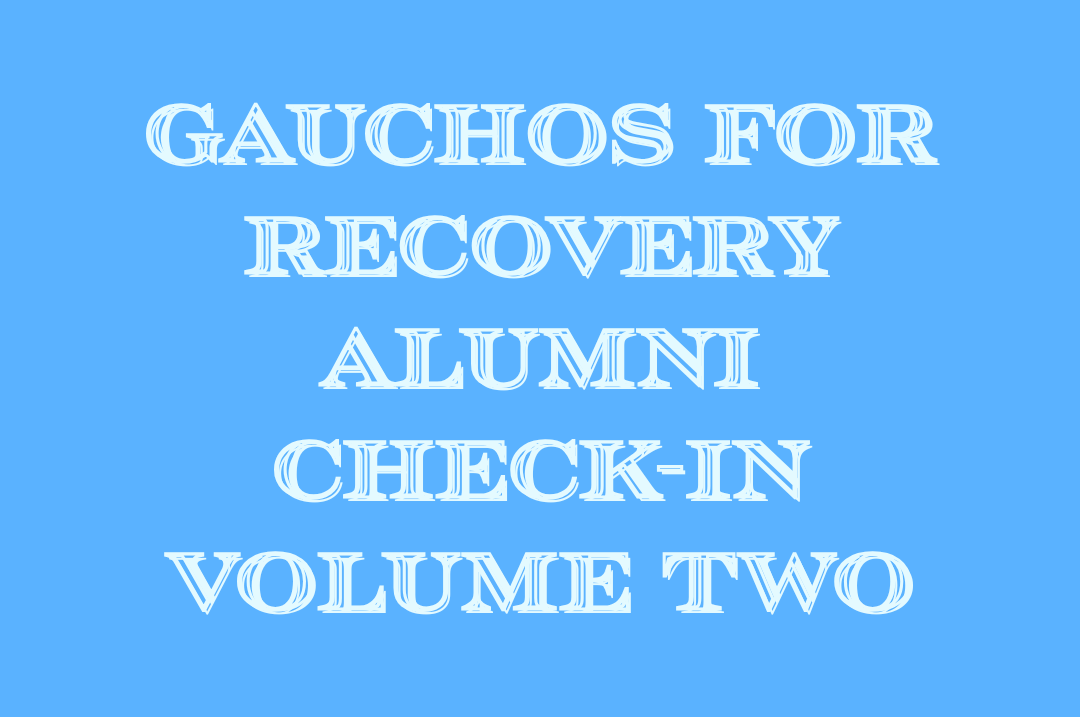
How’s life? What have you been up to?
It's been a while now. So yeah, I mean, I've pretty much, I've stayed pretty rooted in the Santa Barbara recovery community. I graduated 2015. I've moved a little bit since then. I moved to LA for a couple years, but I've always kind of come back here and I've just appreciated the recovery community that's here. A big part of that is the result of GFR and the collegiate recovery community that's happened here. I mean, I was away for a couple of years, but I definitely noticed that when I left.
I didn't really plan to, but I ended up working in the treatment field. Even though I was an environmental studies major, I just liked it, also as a result of GFR, which kind of put me on to working in this field. Also because of what I got exposed to through meetings there. I work for The Haven, which I found out about through GFR, and so the rest is history there. I've been with The Haven ever since, which has been pretty closely tied to collegiate recovery.
Does anything stick out when you reflect on your experience with GFR, specifically while you were in your undergrad years, like how it impacted you then?
Yeah, I mean, I was pretty involved for a couple of years. I very clearly remember those early days, 2014, 15, going to the GFR lounge. I already had almost two years sober when I started going there, but it was the one refuge on campus for me, even though it wasn't a huge program back then. There were like five or six of us that regularly showed up for the Wednesday night meeting, but it was such a staple and an anchor for me on campus.
I actually lived downtown at that time, when I first moved back to finish school, and I had this feeling like, “there's no way I could really hang out around IV,” because of, you know how it is there. I got a hold of some information on GFR. I called, they had an intern reach out to me who told me about the meetings. I showed up and pretty much from that first meeting, I kept going back every week.
And it was surprising, I guess. It surprised me that there even were other students that were in recovery. Now it's great because there's a ton. I don't know how many have showing up to meetings regularly, but at that time, even four or five people, I was like, wow, this is cool. I didn't even know these people were around.
How has recovery impacted your life since moving on from UCSB?
It is my life in a lot of ways. I've intentionally built a life that requires recovery. All my closest relationships are recovery-oriented and centered. My career path is deeply dependent on recovery. I think that's the case for any professional that has to be in recovery. You gotta stay sober to hold down your job. Even more so working in the field of addiction and recovery, it's necessary for me to have my program going on. It's a hard question because I wouldn't really have anything without it, and now talking 12 years later it's hard to even answer in that way. You gotta have it.
Last question, is there any advice you'd give to a current member either about recovery, school or postgraduate life? Like someone attending GFR currently.
Yeah, well, this is really subjective advice. It's not an imperative, but what I would recommend, just based on what I've seen, all the people that I've seen come through GFR over the years, is to stick around here for at least a little while after graduation, like stay in the community. I see that tend to have success. I have a lot of close friends that I've met through GFR that have, you know, around 10 years sober because they stuck around in the community.
I feel like the alternative advice is don't be afraid to invest that time into wherever you end up moving after graduation. Don't be intimidated by joining another fellowship just because what you had at GFR was so great, because it is. There are other ones. Don't let that stop you from continuing recovery elsewhere if you do move.